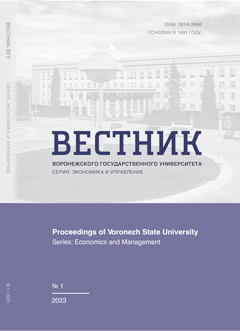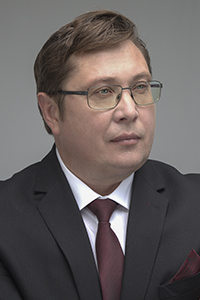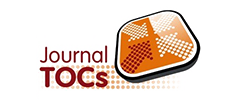Анализ эффективности процедур государственных закупок на основе теоретико-игровых моделей
Аннотация
Предмет. Государственные закупки играют важную роль в сфере предоставления государственных услуг и обеспечения реализации целевых программ правительственных структур. В связи с этим, решающее значение принимает повышение эффективности процедур закупок. Во многом эффективность государственных закупок определяется условиями и форматом закупочной процедуры, в связи с чем особый интерес представляет выявление факторов, влияющих на выбор заказчиком оптимальной процедуры для закупки товаров различного типа, а также оценка влияния этих факторов на эффективность применения существующих процедур.
Цель. Разработка модели выбора закупочных процедур для различных типов товаров и оценка эффективности применяющихся на практике процедур государственных закупок.
Методология. В исследовании использовались выводы теории аукционов; методы качественного и количественного анализа для идентификации государственных закупок, выявления их ценности для участников и проведения оценки эффективности государственных закупок. Для эмпирической оценки были выбраны следующие товары: бумага, лекарственные препараты, поставка автокомплектующих, услуги строительства. Эмпирическую базу исследования составили данные, полученные с сайта единой информационной системы (ЕИС) в сфере закупок.
Результаты. Разработана и оценена модель для выбора процедуры определения поставщика (для эмпирической оценки вероятность выбора определялась по количеству тех и других процедур в состоявшихся закупочных процедурах), а также модель ценовой эффективности применяющихся на практике процедур государственных закупок (под ценовой эффективностью в работе понималась итоговая цена контракта, а также снижение итоговой цены в сравнении с начальной максимальной).
Выводы. На основе проведенного анализа можно судить о необходимости введения промежуточной процедуры между аукционом и закупкой у единственного поставщика, имеющейся в зарубежной практике – переговоров. Процедура аукциона не способна обеспечить поставку наиболее качественных товаров, особенно в случае сложных товаров или услуг с высоким уровнем неопределенности. Для простых товаров аукцион является наиболее предпочтительной процедурой в условиях и высокой конкуренции, и предпочтения качества, он позволяет отобрать наиболее опытного и финансово надежного поставщика.
Литература
Бальсевич, А. ., & Подколзина, Е. А. (2014). Причины и последствия низкой конкуренции в государственных закупках в России. Экономический Журнал ВШЭ, 18(4), 563–585. [Balsevich, A., & Podkolzina, E. A. (2014). Causes and consequences of low competition in public procurement in Russia. HSE Economic Journal, 18(4), 563–585. (In Russian).]
Жемкова, А. М. (2020). Модель выбора процедуры государственных закупок на примере лекарственных препаратов. Вестник Воронежского Государственного Университета. Серия: Экономика и Управление, (3), 48–59. [Zhemkova, A. M. (2020). A model for choosing a public procurement procedure using the example of medicines. Bulletin of Voronezh State University. Series: Economics and Management, (3), 48–59. (In Russian).] https://doi.org/10.17308/econ.2020.3/3104
Островная, М. В., & Подколзина, Е. А. (2014). Снижение эффективности аукционов и борьба с ограничением конкуренции в государственных закупках. Вопросы Экономики, 11, 41–57. [Ostrovnaya, M. V., & Podkolzina, E. A. (2014). Reducing the effectiveness of auctions and combating restrictions on competition in public procurement. Economic Issues, 11, 41–57. (In Russian).]
Островная, М. В., & Подколзина, Е. А. (2018). Ограничения конкуренции на примере российских государственных закупок. Вопросы Экономики, 2, 56–73. [Ostrovnaya, M. V., & Podkolzina, E. A. (2018). Restrictions on competition using the example of Russian government procurement. Economic Issues, 2, 56–73. (In Russian).]
Яковлев, А. А., Башина, А. С., & Демидова, О. А. (2013). Анализ эффективности способов закупки простого однородного товара (на примере сахарного песка). Экономический Журнал ВШЭ, 17(4), 649–677. [Yakovlev, A. A., Bashina, A. S., & Demidova, O. A. (2013). Analysis of the effectiveness of purchasing methods for simple homogeneous goods (using the example of granulated sugar). HSE Economic Journal, 17(4), 649–677. (In Russian).]
Яковлев, А. А., Демидова, О. А., & Балаева, О. (2012). Причины снижения цен на торгах и проблемы исполнения госконтрактов (эмпирический анализ на основе микроданных). Вопросы Экономики, 1, 65–83. [Yakovlev, A. A., Demidova, O. A., & Balaeva, O. (2012). Reasons for the decline in prices at auctions and problems of execution of government contracts (empirical analysis based on microdata). Economic Issues, 1, 65–83. (In Russian).] https://doi.org/10.32609/0042-8736-2012-1-65-83
De Castro, L. I. (2010). Affiliation, Equilibrium Existence and the Revenue Ranking of Auctions. Discussion Papers, Northwestern University, Center for Mathematical Studies in Economics and Management Science, 1530.
De Castro, L. I., & Paarsch, H. J. (2010). Testing affiliation in private-values models of first-price auctions using grid distributions. Annals of Applied Statistics, 4(4), 2073–2098. https://doi.org/10.1214/10-AOAS344
Donald, S. G., & Paarsch, H. J. (1996). Identification, estimation, and testing in parametric empirical models of auctions within the independent private values paradigm. Econometric Theory, 12(3), 517–567. https://doi.org/10.1017/s0266466600006848
Goldberg, V. P. (1977). Competitive Bidding and the Production of Precontract Information. The Bell Journal of Economics, 8(1), 250. https://doi.org/10.2307/3003497
Guerre, E., Perrigne, I., & Vuong, Q. (2000). Optimal nonparametric estimation of first-price auctions. Econometrica, 68(3), 525–574. https://doi.org/10.1111/1468-0262.00123
Hong, H., & Shum, M. (2004). Rates of information aggregation in common value auctions. Journal of Economic Theory, 116(1), 1–40. https://doi.org/10.1016/S0022-0531(03)00224-2
Hortaçsu, A., & McAdams, D. (2010). Mechanism choice and strategic bidding in divisible good auctions: An empirical analysis of the turkish treasury auction market. Journal of Political Economy, 118(5), 833–865. https://doi.org/10.1086/657948
Lalive, R., & Schmutzler, A. (2011). Auctions vs Negotiations in Public Procurement: Which Works Better? Working Paper Series, University of Zurich, Department of Economics, 23. https://doi.org/10.2139/ssrn.2687039
Li, T., Perrigne, I., & Vuong, Q. (2000). Conditionally independent private information in OCS wildcat auctions. Journal of Econometrics, 98(1), 129–161. https://doi.org/10.1016/S0304-4076(99)00081-0
Li, T., Perrigne, I., & Vuong, Q. (2002). Structural Estimation of the Affiliated Private Value Auction Model. The RAND Journal of Economics, 33(2), 171. https://doi.org/10.2307/3087429
Milgrom, P. R., & Weber, R. J. (1982). A Theory of Auctions and Competitive Bidding. Econometrica, 50(5), 1089. https://doi.org/10.2307/1911865
Nelson, P. (1970). Information and Consumer Behavior. Journal of Political Economy, 78(2), 311–329. https://doi.org/10.1086/259630
Paarsch. (1994). A Comparison of Estimators for Empirical Models of Auctions. Annales d’Économie et de Statistique, 34, 143–157. https://doi.org/10.2307/20075950
Paarsch, H. J. (1997). Deriving an estimate of the optimal reserve price: An application to British Columbian timber sales. Journal of Econometrics, 78(2), 333–357. https://doi.org/10.1016/s0304-4076(97)00017-1
Vickrey, W. (1961). Counterspeculation, Auctions, and Competitive Sealed Tenders. The Journal of Finance, 16(1), 8–37. https://doi.org/10.1111/j.1540-6261.1961.tb02789.x
Wilson, R. (1977). A bidding model of perfect competition. Review of Economic Studies, 44(3), 511–518. https://doi.org/10.2307/2296904

Это произведение доступно по лицензии Creative Commons «Attribution» («Атрибуция») 4.0 Всемирная.























